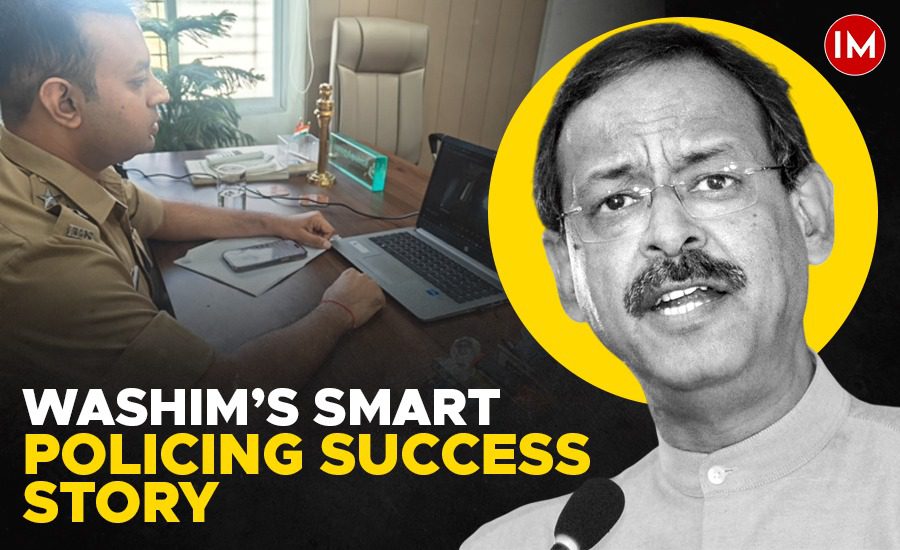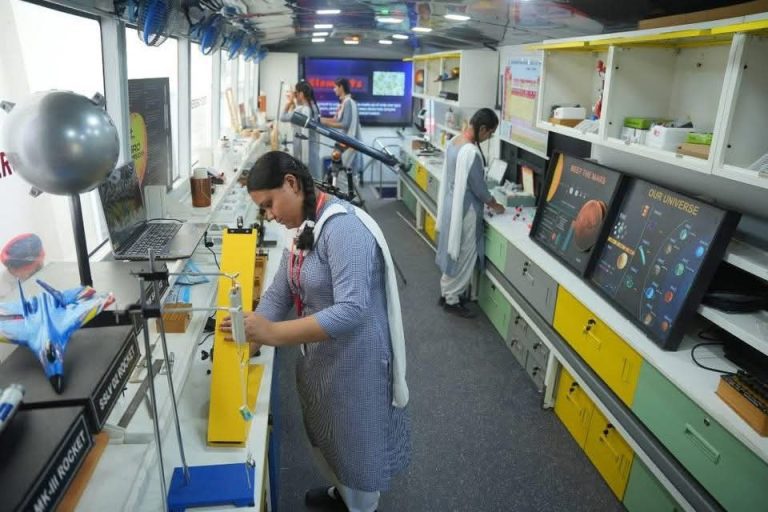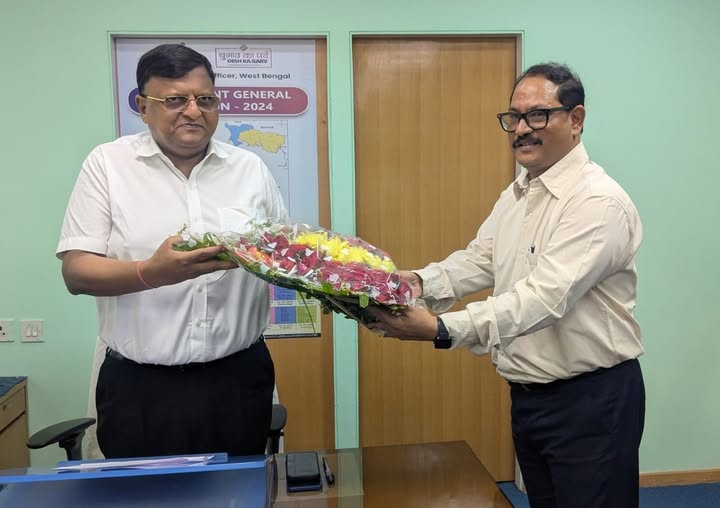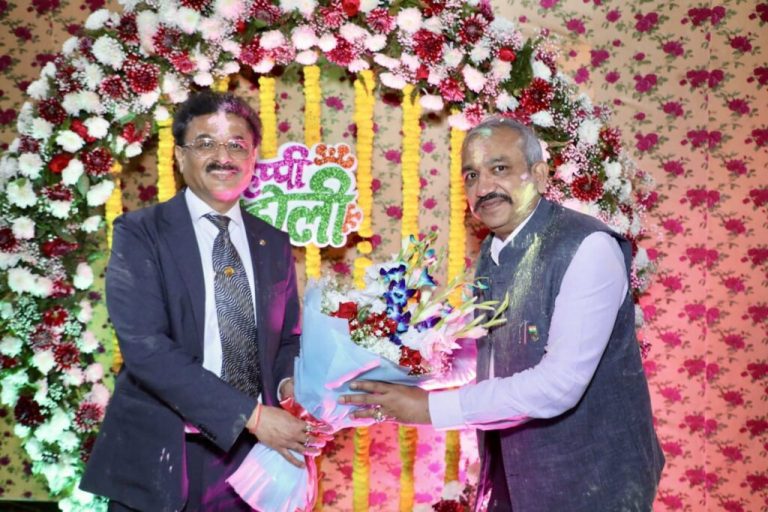Nexus of Good
AI-Driven Community and Proactive Policing
In recent years, law enforcement agencies across the globe have increasingly sought to integrate technological innovations into their operations to enhance efficiency, transparency, and community engagement. A notable example of this trend can be found in Washim, Maharashtra, where a young police officer, Navdeep Aggarwal, has pioneered a transformative community policing initiative leveraging artificial intelligence (AI). Known as the “Direct Dialogue with ASP” programme. This initiative exemplifies the fusion of technology with human-centred policing, aiming to strengthen trust between citizens and law enforcement, improve responsiveness, and foster a safer community environment.
Washim, like many districts in India, faces the challenge of ensuring effective law enforcement while maintaining open channels of communication with citizens. Traditional policing methods, although functional, often limit real-time interaction between the public and senior police officials. Citizens may encounter difficulties in registering complaints, obtaining clarifications, or providing feedback on police actions. Recognising these challenges, a model was envisioned in which direct communication between citizens and senior police officers becomes seamless, immediate, and empathetic—thereby addressing traditional gaps in accessibility and transparency. The integration of AI technologies into policing operations represents a strategic solution, combining automation, data analytics, and digital communication tools to address these issues.
The “Direct Dialogue with ASP” initiative employs AI-powered platforms to facilitate real-time video communication between citizens and the Assistant Superintendent of Police (ASP). Unlike conventional approaches, which require physical visits to police stations or intermediaries, this system allows citizens to connect directly via their smartphones or computers. The AI component enhances the efficiency and personalisation of interactions by:
Automating Appointment Scheduling: Citizens can schedule calls at convenient times, reducing waiting periods and administrative delays. Ten-minute slots are made available on Tuesdays and Thursdays. Appointments can be booked by scanning a QR code placed at police stations, chowkis, tehsil offices, key locations in the city, and common service centres in villages.
Intelligent Query Categorisation: AI algorithms analyse incoming queries, complaints, and suggestions, categorising them by urgency, topic, and potential resolution. This enables the ASP to prioritise effectively. Python scripts run in the background to generate actionable points from each video call.
Data-Driven Insights: Analytics generated by the AI platform identify recurring issues, emerging trends, and areas requiring immediate attention. This helps the police proactively design targeted interventions.
Enhanced Record-Keeping: The system maintains detailed digital records of interactions while ensuring confidentiality, thereby facilitating greater transparency and accountability.
Through this AI-assisted framework, the initiative provides a hybrid advantage, marrying technological efficiency with the empathetic judgment and discretion of human officers.
The primary objectives of the “Direct Dialogue with ASP” initiative are multifaceted, reflecting both operational and community-focused goals:
Enhancing Accessibility: By providing a virtual bridge, the initiative enables citizens from both urban and rural areas to connect with senior police officials, overcoming geographical and logistical constraints.
Promoting Literacy in Civic Engagement: Citizens are encouraged to actively participate in governance and policing, fostering a culture of accountability and social responsibility.
Transparency and Accountability: Direct communication minimises miscommunication and establishes clear channels for grievance redressal, leading to public trust in law enforcement procedures.
Rapid Response and Resolution: AI-assisted triaging allows the police to allocate resources promptly for priority issues.
Strengthening Community Police Relations: Regular dialogue nurtures empathy and mutual understanding between citizens and police officers, reducing potential conflicts and misunderstandings.
The operational methodology of the initiative combines digital technology deployment, training, and community awareness:
Platform Implementation: The system of an AI platform is capable of hosting secure video calls.
Police Training: SHOs and police patils in each village have been trained to facilitate the booking of slots.
Community Outreach: Public awareness campaigns were conducted to educate citizens about the new platform, emphasising its usability, privacy safeguards, and benefits. Efforts included local workshops, social media promotion, and print awareness materials.
Continuous updating: Whether queries/grievances have been redressed or not is also recorded on the dashboard
Since its inception, the”Direct Dialogue with ASP” initiative has achieved significant outcomes in several key domains:
Increased Citizen Participation: Civil engagement has increased, with citizens citing convenience, transparency, and responsiveness as motivating factors for participation. For instance, in one case, an application submitted to a police station was pending for almost a year. The RTI reply, although initially containing errors, was effectively resolved.
Improved Transparency: Regular dialogues and meetings enhance the police’s ability to track complaint resolution, thereby building public trust. For instance, a person from Abu Dhabi had an application for police protection pending at one police station for quite some time. However, within a week, his issue was resolved without him needing to travel all the way from Abu Dhabi.
Enhanced Crime Prevention: Analytical insights highlight patterns of recurring complaints or minor disturbances that could escalate, allowing preemptive measures to be implemented.
Operational Efficiency: Prioritisation and triaging facilitated by AI reduces unnecessary workload while ensuring urgent matters receive immediate attention.
Recognition and Replication Potential: The initiative has drawn attention from policymakers, academics, and law enforcement bodies, demonstrating a scalable model for other districts in India.
Feedback from Washim residents highlights openness to digital governance interventions. Citizens appreciated direct dialogue with senior police leadership, contrasting it with conventional bureaucratic procedures that often feel distant or opaque. By reducing intermediaries and enhancing response speed, the initiative fosters perceived fairness and the sense that public voices are being heard meaningfully. Moreover, the platform’s educational outreach helps citizens navigate civic responsibilities and encourages preventive community action.
While successful, the initiative faces challenges typical of technology-enabled governance models:
Digital Divide: Access to smartphones and the internet remains uneven in rural segments, necessitating parallel strategies for inclusivity.
Privacy and Data Security: Handling sensitive complaints digitally requires robust cybersecurity protocols to maintain trust.
Human Resource Adaptation: Officers require ongoing training to strike a balance between AI assistance and personalised judgement, thereby avoiding over-reliance on automated triaging.
The Washim initiative serves as a powerful example of how AI can complement human-centric public services rather than replace them. By embedding cutting-edge technology within ethical and empathetic governance frameworks, the model demonstrates that law enforcement can evolve to better serve nearly all segments of society. Lessons from this initiative can inform implementation strategies in other Indian districts and international contexts, with a particular emphasis on their practical applications.
The “Direct Dialogue with ASP” initiative is a wonderful example of the Nexus of Good, as the model can be replicated and scaled through a public-private partnership. It is a significant step toward modernising policing through AI while prioritising transparency, accessibility, and empathy.



































